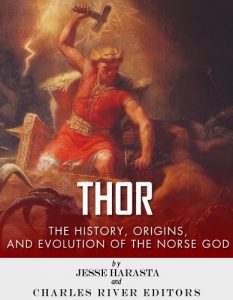*Includes pictures
*Includes online resources and a bibliography for further reading
*Includes a table of contents
"I have not the nerve for his operations. They are well-planned, with great cleverness and adroitness in execution – but he is in money and funds what Napoleon was in war." - Baron Baring on Nathan Rothschild“
The mere mention of banks is enough to crinkle the noses and furrow the brows of most. The thought of these fat cats conjures up an image of corporate types sporting snazzy suits and jaunty top hats with bulky bags of cash swinging in their hands. They are often portrayed as greedy money-grubbers who puppeteer the system, siphoning money off the public with interest rates and the like. Many seem to view them as the cause of many, if not all, financial disasters.
A few bad apples seemed to have spoiled the reputations of the rest of the bunch. Scandal has almost become expected of these institutions. Banks around the globe have become subject to accusations of discriminatory practices, rogue and insider trading, and increased shadow banking, among others. These days, one would be hard-pressed to find media coverage that paints these institutions in good light. But where did it all begin?
Throughout the following centuries, the systems of banking institutions continued to develop, and the art of money persisted well on to the 18th century. One of these money changers was a German-Jewish man by the name of Amschel Moses Rothschild. He lived in the Jewish ghetto of Frankfurt, home to the largest Jewish community in early modern Europe. Beyond perhaps the wildest dreams of the oppressed and their oppressors, this small-scale money changer, along with his wife, would give birth to the forefather of one of the most powerful families the world has ever seen: the Rothschilds.
The Rothschild dynasty of power and wealth would not only become a force to be reckoned with in the banking industry, but they would also become the ceaseless subject of scandal, conspiracy theories, and awe. Descriptions full of hyperbole have been on public display for centuries, such as the family description that appeared in the Niles’ Weekly Register in 1836, “The Rothschilds are the wonders of modern banking … Not a cabinet moves without their advice. They stretch their hand, with equal ease, from Petersburgh to Vienna, from Vienna to Paris, from Paris to London, from London to Washington... They are the brokers and counselors of the kings of Europe and of the republican chiefs of America. What more can they desire?"
The Rothschild Family: The History and Legacy of the International Banking Dynasty looks at one of the richest families in history. Along with pictures depicting important people, places, and events, you will learn about the Rothschilds like never before.
*Includes online resources and a bibliography for further reading
*Includes a table of contents
"I have not the nerve for his operations. They are well-planned, with great cleverness and adroitness in execution – but he is in money and funds what Napoleon was in war." - Baron Baring on Nathan Rothschild“
The mere mention of banks is enough to crinkle the noses and furrow the brows of most. The thought of these fat cats conjures up an image of corporate types sporting snazzy suits and jaunty top hats with bulky bags of cash swinging in their hands. They are often portrayed as greedy money-grubbers who puppeteer the system, siphoning money off the public with interest rates and the like. Many seem to view them as the cause of many, if not all, financial disasters.
A few bad apples seemed to have spoiled the reputations of the rest of the bunch. Scandal has almost become expected of these institutions. Banks around the globe have become subject to accusations of discriminatory practices, rogue and insider trading, and increased shadow banking, among others. These days, one would be hard-pressed to find media coverage that paints these institutions in good light. But where did it all begin?
Throughout the following centuries, the systems of banking institutions continued to develop, and the art of money persisted well on to the 18th century. One of these money changers was a German-Jewish man by the name of Amschel Moses Rothschild. He lived in the Jewish ghetto of Frankfurt, home to the largest Jewish community in early modern Europe. Beyond perhaps the wildest dreams of the oppressed and their oppressors, this small-scale money changer, along with his wife, would give birth to the forefather of one of the most powerful families the world has ever seen: the Rothschilds.
The Rothschild dynasty of power and wealth would not only become a force to be reckoned with in the banking industry, but they would also become the ceaseless subject of scandal, conspiracy theories, and awe. Descriptions full of hyperbole have been on public display for centuries, such as the family description that appeared in the Niles’ Weekly Register in 1836, “The Rothschilds are the wonders of modern banking … Not a cabinet moves without their advice. They stretch their hand, with equal ease, from Petersburgh to Vienna, from Vienna to Paris, from Paris to London, from London to Washington... They are the brokers and counselors of the kings of Europe and of the republican chiefs of America. What more can they desire?"
The Rothschild Family: The History and Legacy of the International Banking Dynasty looks at one of the richest families in history. Along with pictures depicting important people, places, and events, you will learn about the Rothschilds like never before.












